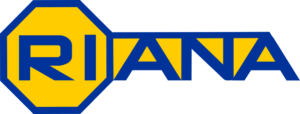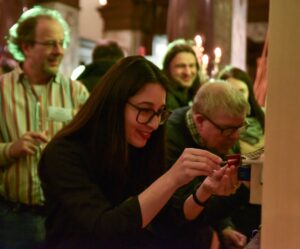The RIANA project, officially launched on 01 March, provides the user community with a unique platform of 69 infrastructures from 22 European countries, including synchrotron, electron microscopy, laser, ion beam, neutron, clean room, and soft matter research infrastructures as well as high-performance computing. Beyond standard user access to single facilities, RIANA offers single-point access and particularly strong user support by a network of junior scientists.
More than 100 participants gathered at a hybrid meeting at DESY (Deutsches Elektronen-Synchrotron) on 14–15 March to officially kick off the new EU project RIANA. RIANA (standing for Research Infrastructure Access in Nanoscience & Nanotechnology) was officially launched on 01 March to offer access to Europe’s leading facilities in nanoscience and nanotechnology that are at the heart of the development of new materials for prosperity and sustainability.
At the kick-off meeting, future steps and the programme for the next four years were defined into two days of presentations and discussions on the six work packages.
“The goal is to provide interdisciplinary access to the large and diverse set of outstanding instruments available in RIANA for research and development in nanoscience and nanotechnology. A team of junior scientists, in close contact with experienced senior scientists, will provide users with a comprehensive service from assistance in writing proposals to hands-on experiment support and data analysis,” comments Michael Stuckelberger (DESY), scientific coordinator of the RIANA project.
RIANA will engage with academic and industrial users via a rolling call system and promote experiments that combine different facilities and techniques. This combination of scientific tools will enable new approaches and an expansion of the user community, paving the way for accelerated innovation based on nanomaterials.
Kaunas University of Technology Institute of Materials Science (MMI) is part of RIANA via its membership in the EuroNanoLab network which is a distributed research infrastructure with 44 cleanrooms from 14 countries involved. MMI Cleanroom is a 130 m² ISO5 (Class 100) facility and is open to the entire university community, as well as external academic and commercial partners. Equipped with advanced nanofabrication equipment and adhering to the highest industry standards, it provides an environment free from contaminants, ensuring optimal conditions for demanding processes.




